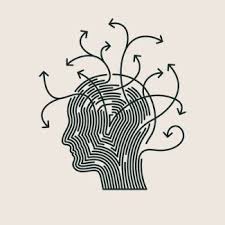Managing Obsessive-Compulsive Disorder (OCD): A Compassionate and Evidence-Based Approach
Obsessive-Compulsive Disorder (OCD) often feels like being caught in a relentless tug-of-war between intrusive thoughts and the urgent need to perform certain behaviors to ease anxiety. These patterns can feel consuming, leading to exhaustion and frustration. While professional treatment—such as therapy and sometimes medication—remains the most effective way to manage OCD, I understand that access to consistent care is not always immediate or simple. Even so, there are meaningful and practical ways to begin easing symptoms and regaining a sense of control.
Understanding the Cycle
OCD tends to create a cycle of obsessions (unwanted, distressing thoughts) and compulsions (repetitive actions meant to reduce discomfort or prevent feared outcomes). This cycle often begins innocently but can gradually take up more time, attention, and emotional energy, affecting relationships, work, and overall quality of life.
From a Narrative Therapy perspective, I invite you to view OCD not as something that defines who you are, but as a story that has gained too much influence in your life. You are not your OCD—you are a person living with it, navigating its effects, and capable of shaping a different story about how you relate to it.
Practical Ways to Begin Reclaiming Control
Although everyone’s experience with OCD is unique, here are some strategies that can help you start creating space between yourself and your symptoms:
-
Work toward exposure and response prevention (ERP) under the guidance of a therapist. This evidence-based CBT method involves gradually confronting intrusive thoughts without engaging in the compulsive behaviors that follow.
-
Reduce rituals gradually, rather than attempting to stop them all at once. Small, steady steps often lead to sustainable progress.
-
Practice mindfulness, learning to observe thoughts without reacting to them or assigning meaning. Thoughts are simply mental events—not instructions or reflections of your character.
-
Develop supportive routines to decrease stress, as anxiety often fuels obsessive and compulsive cycles. Consistency in sleep, nutrition, and daily structure can create a stabilizing foundation.
Through CBT, we work on identifying distorted thinking patterns and replacing them with balanced, realistic thoughts. Through Positive Psychology, I encourage you to notice strengths, celebrate progress, and cultivate self-compassion. Each small step is a meaningful victory, not merely an obligation to “get better.”
Moving Forward with Professional Support
Living with OCD can feel overwhelming, but you are not powerless against it. With the right tools, insight, and support, it is entirely possible to build a healthier relationship with your thoughts and behaviors. Therapy offers more than symptom management—it offers an opportunity to rewrite your story, rediscover your strengths, and reconnect with peace of mind.
If you are ready to move beyond coping and begin reshaping your life narrative, I invite you to schedule a session with me. Together, we will work to understand the patterns that keep OCD active, challenge the beliefs that sustain it, and strengthen the parts of you that have always been capable of healing. You deserve to live a life guided not by fear or ritual, but by awareness, choice, and compassion.

